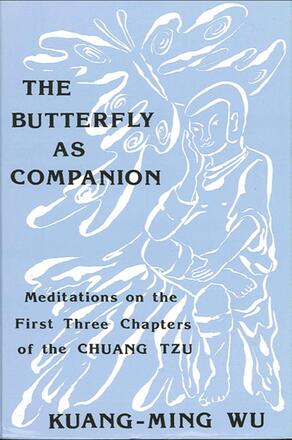
The Butterfly as Companion
Meditations on the First Three Chapters of the Chuang-Tzu
Alternative formats available from:
Thorough, serious, yet fun to read, this is a translation of the text and an exposition of the philosophy of Chuang Tzu the Taoist of ancient China.
Description
Chuang Tzu's first three chapters are arranged into free verse (in Chinese, in the original word order) and translated, nearly word-for-word, with extensive critical glosses vis-a-vis over fifty Chinese, Japanese, and Western commentators. The exegetical, philosophical, and contemporary implications of these chapters are then meditated upon. Here, in Chuang Tzu's world, all strivings are a play, parodying stories and arguments; each plays off of and refers to the others.
Chuang Tzu lived during the third and fourth centuries B. C. Historically, he is the foremost spokesman for Taoism and its legendary founder, Lao Tzu. It was mainly due to the influence of Chuang Tzu that Indian Buddhism was transformed in China into Ch'an into the unique vehicle we usually call by its Japanese name, Zen.
This is the most thorough presentation to date of the Chuang Tzu's poetic beauty, philosophical insights, and unity.
Kuang-ming Wu is Professor of Philosophy at the University of Wisconsin-Oshkosh.
Reviews
"The aim of the meditation is to bring the reader to understand Chuang-Tzu as a contemporary philosopher as well as an ancient Chinese thinker, yet never is there a blurring of historical distance and context. Wu moves back and forth between China and the Western traditions as if that were easy, like the butterfly's fluttering with which his book begins. The breadth of Wu's scholarship and his calm possession of it are breathtaking. "—Robert Cummings Neville